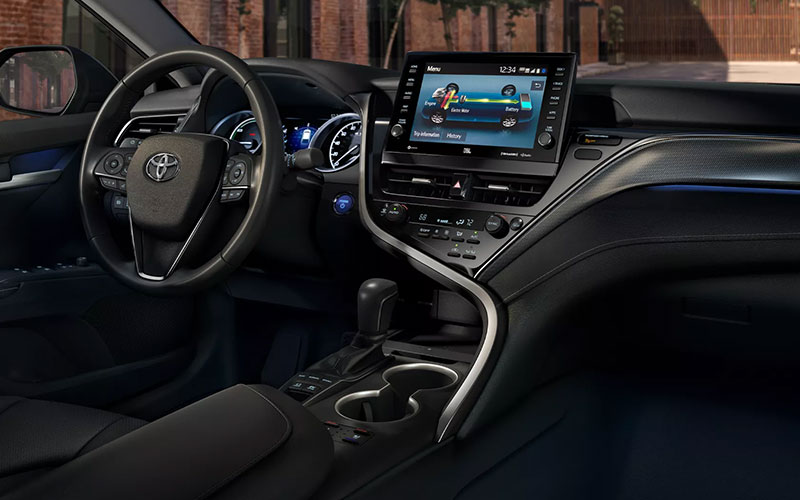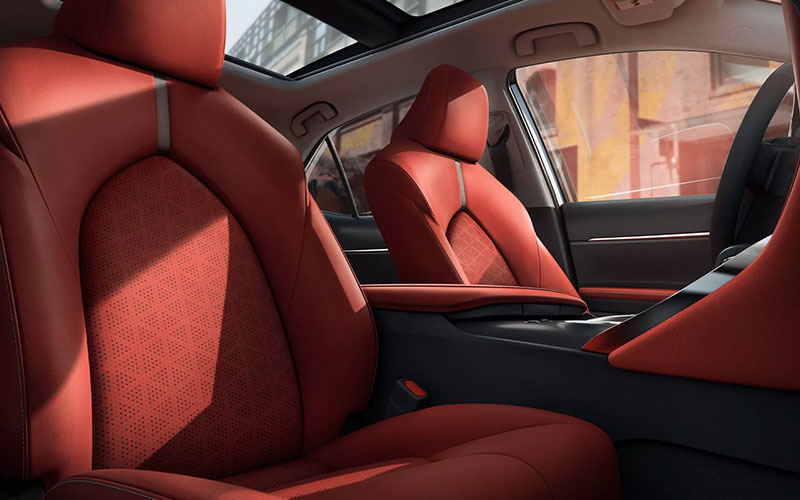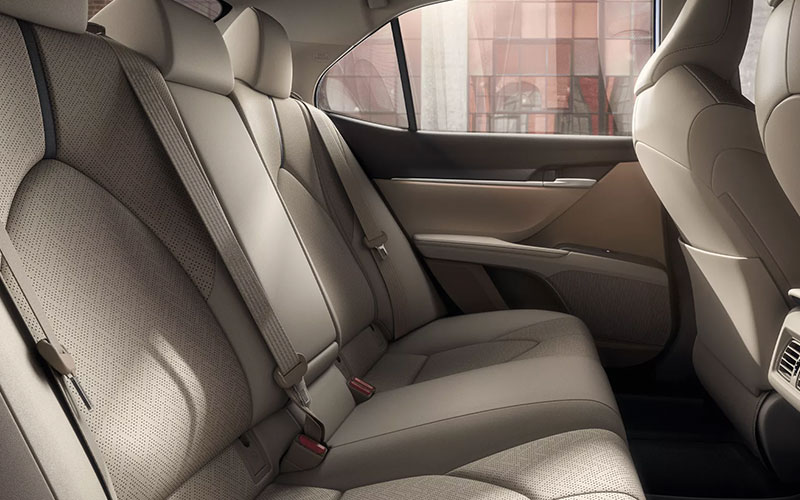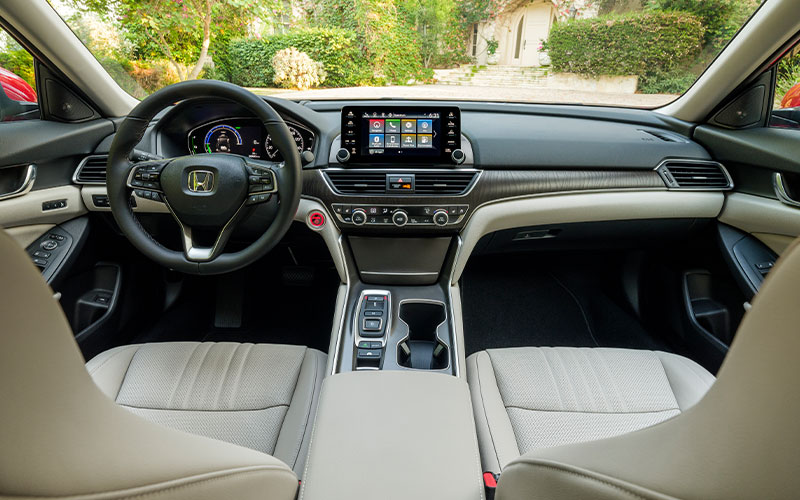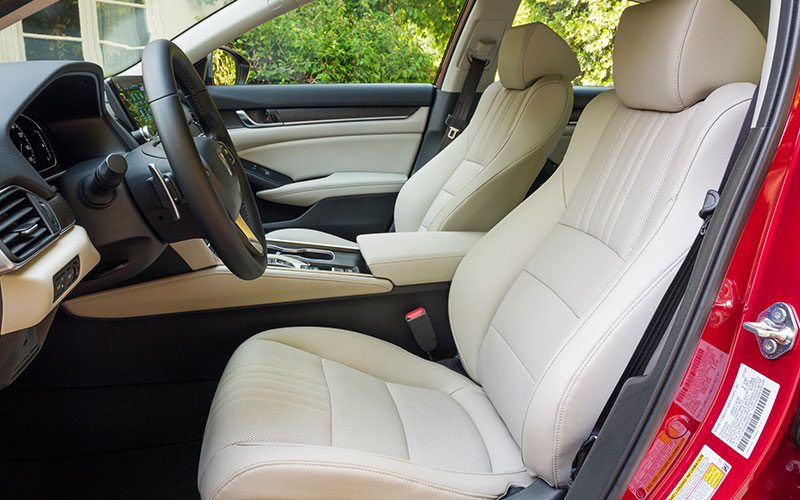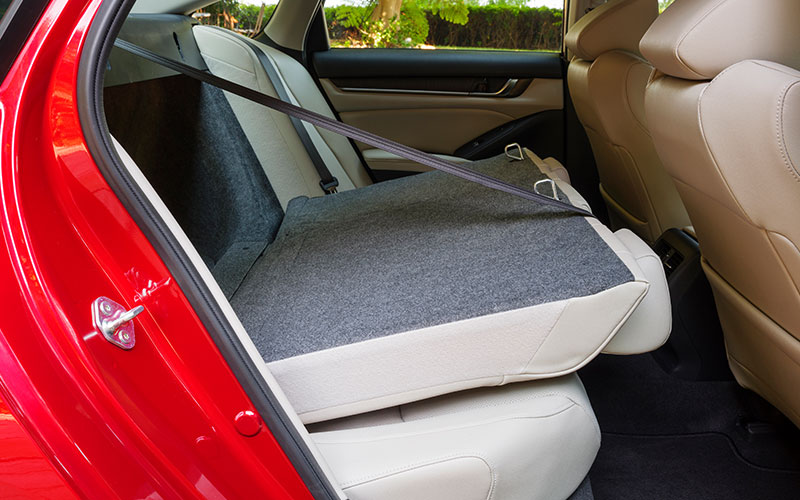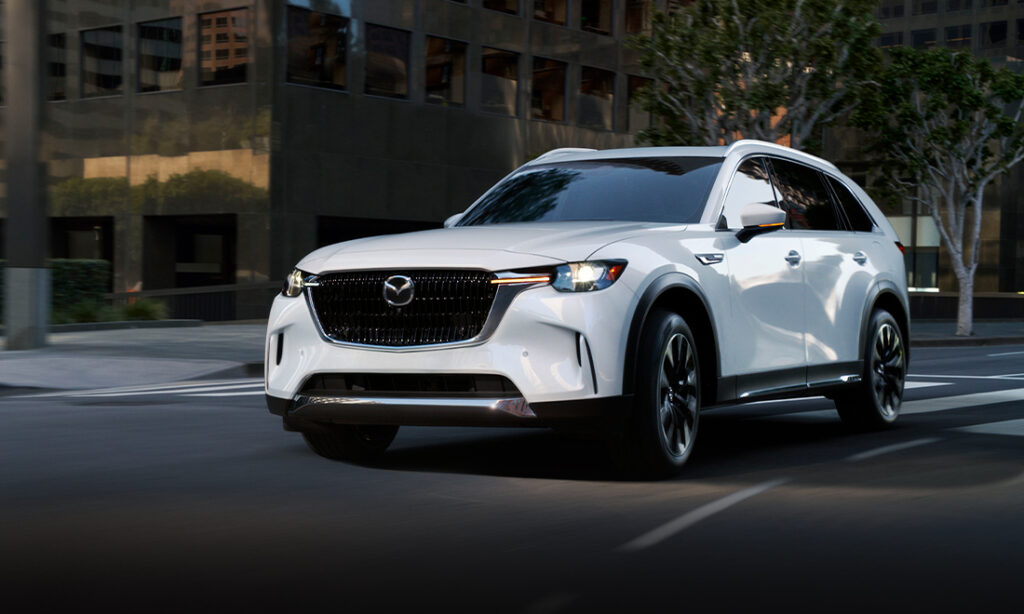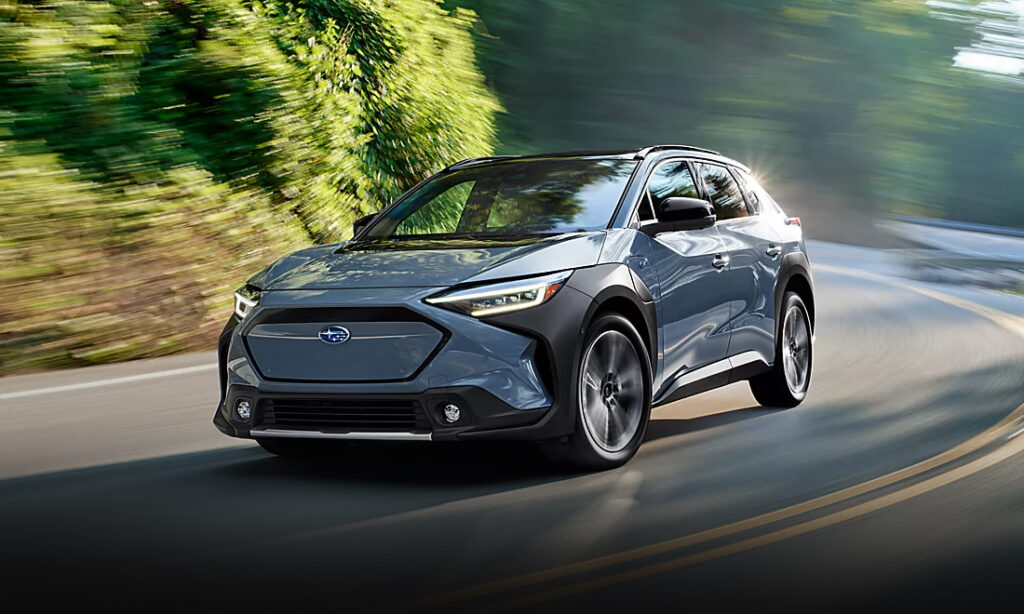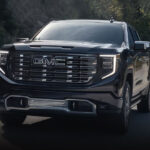Toyota Camry Hybrid vs Honda Accord Hybrid
Honda Accord Hybrid vs Toyota Camry Hybrid: two of the very best hybrids on the market match-up closely on nearly every metric.
Superlative Cars
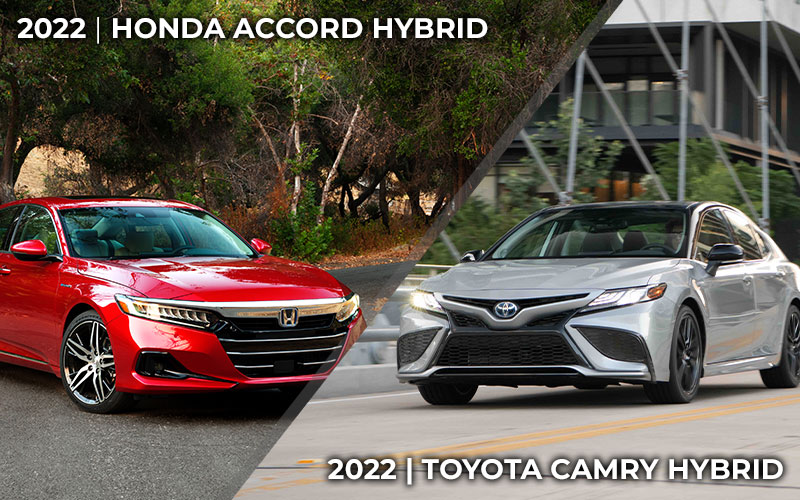
To put my cards on the table, I like the 2022 Toyota Camry Hybrid and 2022 Honda Accord Hybrid a lot more than most cars. In fact, as consumer products focused on practicality and efficiency, I’m not shy about proclaiming these two sedans among the best money one can spend in the car market today. That’s because, in addition to their supreme functionality, they’re also stylish, enjoyable to drive (to varying degrees, of course), and come from two automakers who have well-earned reputations for quality and reliability.
The Camry Hybrid and Accord Hybrid are so good that they threaten to make us forget all about our collective love affair with the crossover. After a week with either of these cars, you’ll look at the RAV4s and CR-Vs of the world in a new and dimmer light.
But which of these two monuments to car buying savvy is the better pick? We sus out the details and give our recommendation below.
Specs
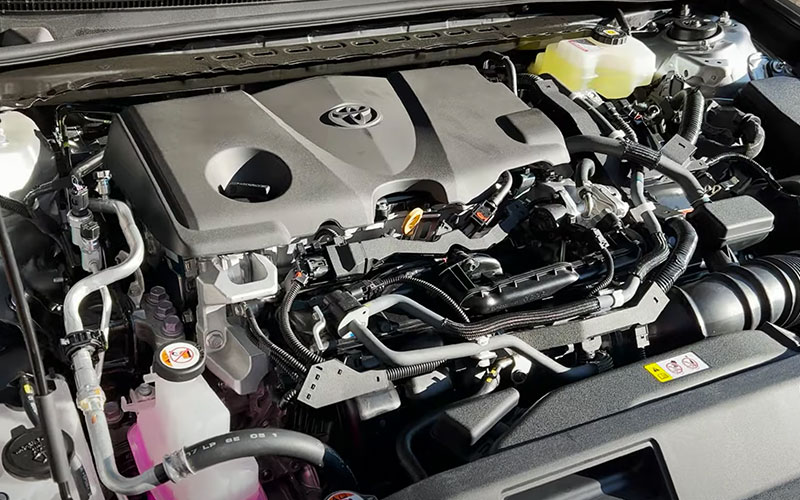
The 2022 Toyota Camry Hybrid features a 2.5L inline-four combined with an electric motor to produce 208 horsepower. Torque isn’t listed by Toyota for their hybrids, but the gas engine makes 163 lb-ft while the electric motor makes 149 lb-ft. Though these two numbers are not purely additive, the Camry Hybrid certainly possesses decent pull. Power is sent to a CVT (continuously variable transmission). Fuel economy comes in at 51 city and 53 highway MPG for the base LE trim while the XE, XLE, and XSE get 44/47 MPG. The Camry Hybrid comes in front-wheel drive.
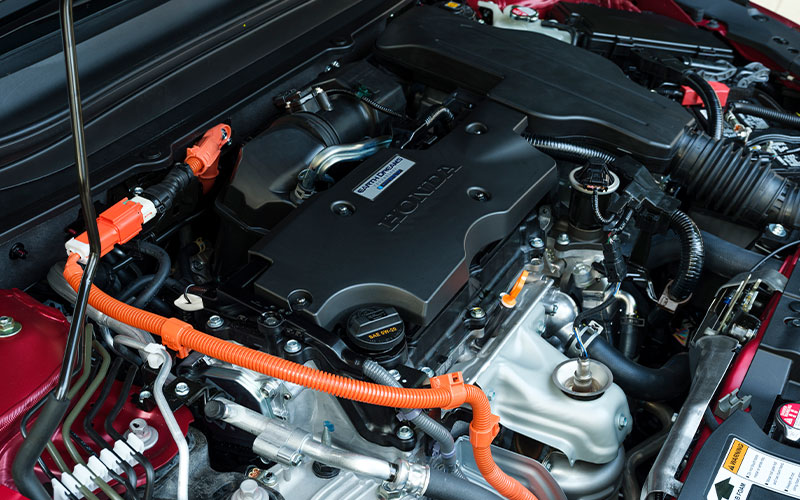
The 2022 Honda Accord Hybrid is powered by a 2.0L inline four and two electric motors for 212 horsepower. Similarly, a combined torque number isn’t listed. Separately, the gas engine makes 129 lb-ft while the two electric motors make a combined 232 lb-ft. A CVT is also the sole transmission for the Accord. Fuel economy for the Accord is 48 city and 47 highway MPG for the base and EX-L trims, the sportier Sport and Touring trims dip slightly to 44/41 MPG. The Accord Hybrid also comes in front-wheel drive.
Driving & Performance
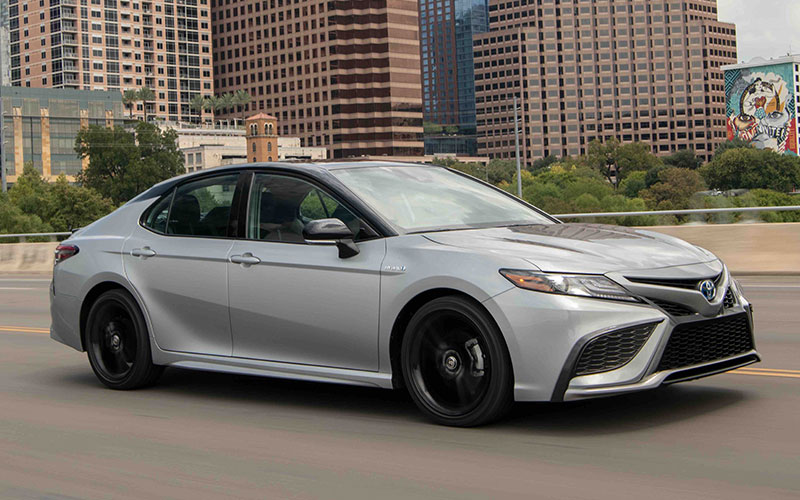
The Toyota Camry Hybrid is a good drive, if not a drivers’ car. For comfort and efficiency, it’s certainly up there. The fuel economy impresses with nearly all but the heaviest of feet and coldest of days allowing you to average 40-plus MPG all day long and nudge into the 50s on the highway. The drive itself is unperturbed and smooth, perfect for both ling highway drives and daily commuting. The regenerative braking (where the car recoups kinetic energy from the brakes to partly recharge the battery) does make the brakes on the Camry Hybrid feel spongy compared to the regular gas version, but most drivers will get used to them in short order. Throttle response is good, thanks to the hybrid systems ample torque, for easy highway passing. Steering can be a bit numb, however, and the car can feel somewhat floaty in cornering. Sadly, the AWD isn’t available in the Camry Hybrid, despite it being an option for the gas-powered version.
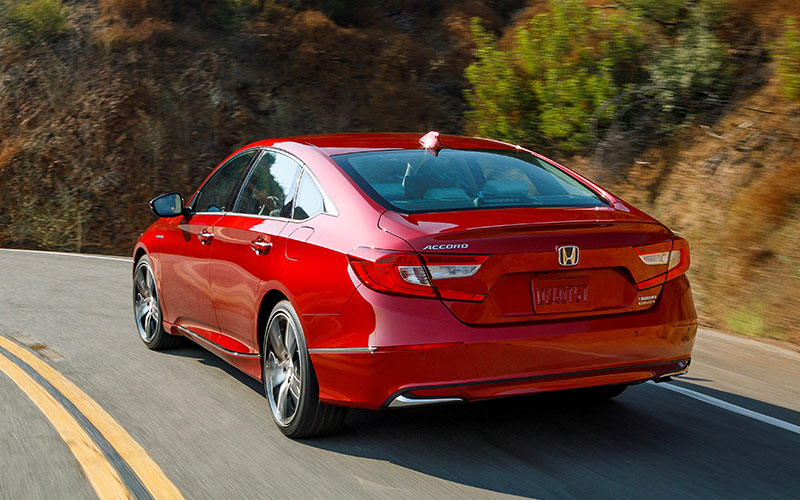
The Honda Accord Hybrid matches the positives of the Camry Hybrid while eliminating many of its shortcomings. Steering is sharper and more responsive in the Accord Hybrid; cornering is more confident, and dare I say, fun. The Accord Hybrid’s regen braking isn’t as mushy as the Camry Hybrid’s either; much closer to that of a conventional gas car. The firmer suspension makes for livelier handling, but at a cost to ride quality, where the Accord Hybrid is more easily upset over bumps and road imperfections. While hybrid powertrain’s torquiness allows for decent acceleration, throttle response is more muted at speed in the Accord Hybrid than it is in the Camry Hybrid. The one area the Accord Hybrid lags behind the Camry Hybrid is efficiency, especially in those highway numbers, with a 6 MPG difference. Here too, an all-wheel drive option is sadly absent.
Interior & Comfort
Decent driving dynamics and impressive efficiency wouldn’t amount to much if the interiors of these two cars weren’t as impressive as they are. The Camry Hybrid, and this generation of Camry as a whole, goes out of its way to shed Toyota’s reputation for dull, utilitarian interiors (there still around, just not in the Camry). The Camry Hybrid’s interior is nothing if not bold. The dashboard’s bold swoop and the optional red upholstery and trimmings are statement making. And yet, functionality remains high with loads of physical buttons perfectly placed. Fit and finish are good, with Toyota working hard to deploy hard plastics in the least offensive areas as possible. The Camry Hybrid’s seats are a highlight. Supportive and forgiving in equal measure, they’re just what you want for long highway rides. The optional premium JBL stereo is highly recommended as one of the best systems in a non-premium vehicle. The Camry Hybrid’s cargo comes in at 15.1 cu-ft, with a 60/40 split rear seat.
The Accord Hybrid’s interior isn’t quite as eye-popping as the Camry Hybrid’s, but, depending on your taste, it might be the better looking. Form and function are perfectly wedded, and details like the honeycomb dash and that extra bit of flourish. Quality, in both build and materials is high. Everything feels solid and thoughtfully executed, giving the Accord Hybrid a semi-luxury air. The rear seat impresses with a full 40.4 inches of legroom in back, more than enough for adult passengers and nudging into SUV levels of roominess (the number is actually identical to the Honda CR-V). The seats in the Accord Hybrid aren’t quite as good as the Camry Hybrid’s, however. Our favorite feature was the wireless Android Auto and Apple CarPlay available on higher trims, allowing us to easily bypass Honda’s so-so infotainment system. Cargo is an impressive 16.7 cu-ft, also with a 60/40 split rear seat.
Trims & Features
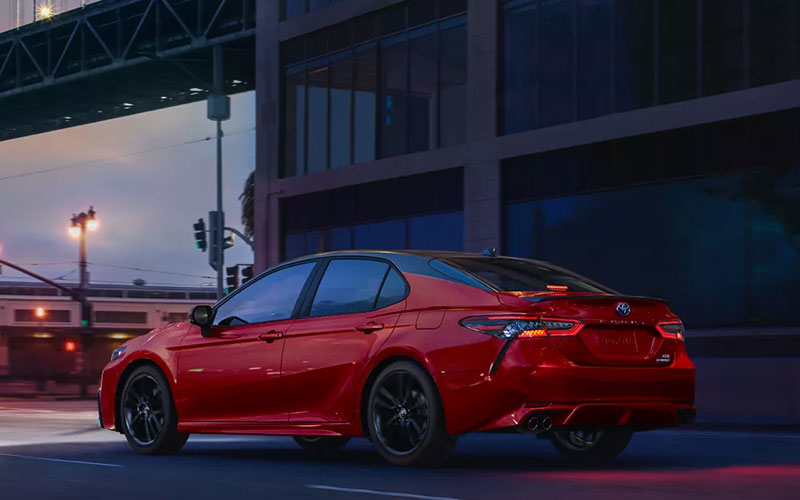
The Toyota Camry Hybrid comes in five trims: LE, SE, SE Nightshade, XLE, and XSE. The base LE model starts at $27,780. Its standard features include dual-zone climate control, an eight-way power drivers’ seat, an seven-inch touchscreen, Apple CarPlay, Android Auto, and Amazon Alexa, Bluetooth, Wi-Fi hotspot, and Toyota Safety Sense which includes features like land keep assist, automatic emergency braking, adaptive cruise control, and pedestrian and cyclist detection. Options packages add items like heated front seats, a moonroof, and blind spot detection.
The SE trim gets synthetic leather and a sport-tuned suspension. The SE Nightshade adds black exterior accenting and a rear spoiler. The XLE has real leather upholstery, ambient lighting, and an eight-way power front passenger seat. Options for the XLE include a premium JBL stereo system, navigation, and a moonroof. The top XSE trim starts at $33,820 and gets a the sport-tuned suspension and unique styling.
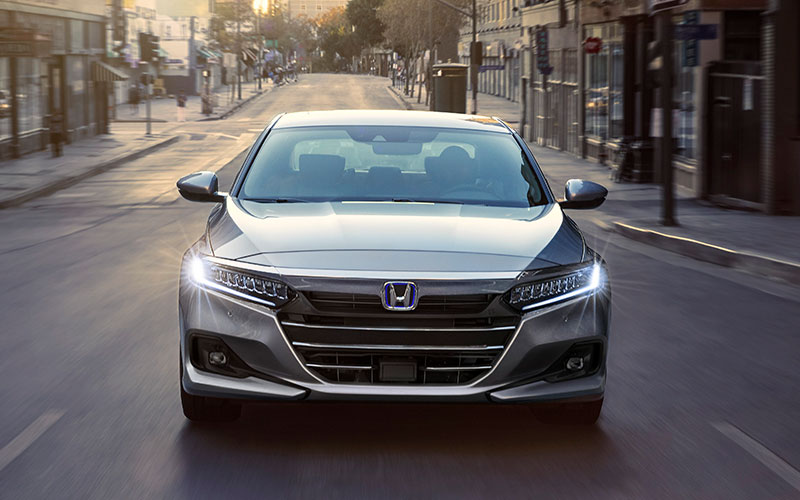
The Honda Accord Hybrid had a total of four trims: base, Sport, EX-L, and Touring. The base model starts at $26,670 and offers an eight-inch touchscreen, Apple CarPlay and Android Auto, Bluetooth, two USB ports, push-button ignition, dual-zone climate control, and a suite of safety tech features than include automatic emergency braking, adaptive cruise control, and lane departure warning. The Sport trim provides wireless Apple CarPlay and Android Auto, as well as a power driver’s seat and satellite and HD radio. The EX-L trim features a 10-speaker stereo, moonroof, heated front seats, and leather upholstery. The top Touring trim comes in at $36,540 and gives you heated rear seats, navigation, a Wi-Fi hotspot, and a heads-up display.
Buy the Hybrid
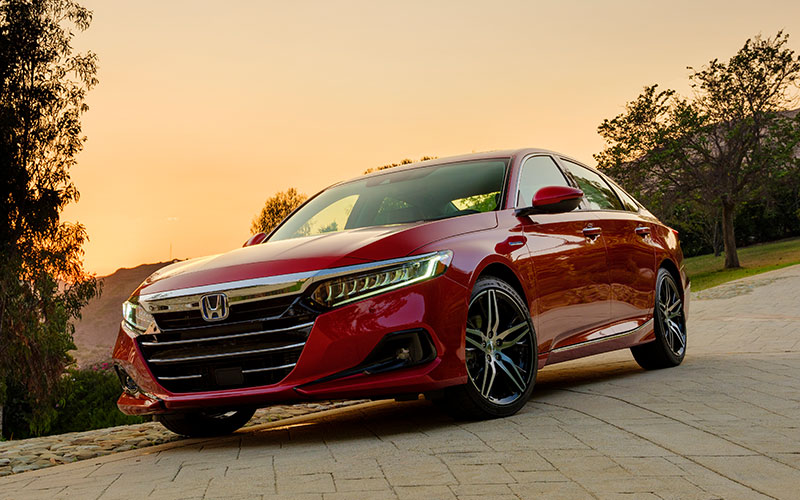
If you’re in the market for either the Toyota Camry or the Honda Accord, make sure you have a very compelling reason before forgoing the hybrid. Can’t find any? Thought so. Now that you’ve jumped on the efficiency bandwagon, you’ve got to decide which of these two cars to go with. The Camry’s sterling MPG numbers and generous base model make for a great package you’re unlikely to regret. But the sharper and more refined Accord wins our recommendation. The Accord impressive interior, roomy and stylish, is perfectly balanced by a car that drives with a degree of excitement we don’t usually expect from mid-size sedans, let alone a hybrid one. As I noted at the outset, both cars are great, not merely good, and your choice between them may come down to the simple matter of which you think looks better.
And were Toyota and/or Honda insightful enough to grace on of these cars with all-wheel drive, you, me, and the rest of the car buying public would be out of excuses and forced, through sheer force of reason, to buy one of these two hybrids.


